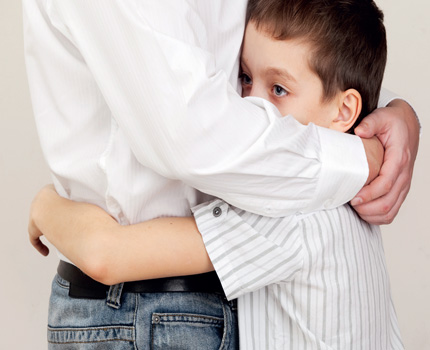 From not allowing your child to play freely on the playground to hovering over your child during an activity, often as parents, we may be doing more harm than good by over protecting our kids…. HEALTH learns why over protecting can do more harm than good.
From not allowing your child to play freely on the playground to hovering over your child during an activity, often as parents, we may be doing more harm than good by over protecting our kids…. HEALTH learns why over protecting can do more harm than good.
Once Upon a Time
Once upon a time kids played outside, walked to school and learned on their own. Today parents are sheltering their kids out of worry and fear for their safety and may be afraid of negative consequences if too much freedom is given to a child, Children never get to play freely with other children – there is always adult supervision. Studies, in fact, have shown that too much sheltering can lead to complications later in life. These children may have difficulties making decisions in adulthood and difficulty maintaining relationships as well as when these children enter adolescence, their desire to form their identity and individualize from family increases.
The Implications of Overprotecting Your Child
- Kids don’t learn to be “streetwise” by exploring and roaming their neighborhoods.
- Supervised plays also has the effect of cushioning children against the natural and sometimes nasty give-and take between peers – a process that provides valuable life lessons. Children need to learn how to negotiate their own disagreements and choose their natural leaders.
- Also too much sheltering can create a lack of problem solving skills that are vital for development. For example, if a child experiences conflict with another child parents may take a proactive role and attempt to “fix” the problem.
- Parents can help by giving the child suggestions and mediating if asked, they should provide them with an opportunity to create their own solutions with appropriate guidance.
- Parents forget that no one child is good at everything and people learn by failing. Because they were not allowed to explore, take risks or fail, many in Gen Y feel disconnected from themselves.
Childhood without End
“This has been the most protected generation in history,” says Mark Thompson, director of counseling at Colgate University. He points to car seats, bicycle helmets, and even wood chips under park swings. Because Gen Y has been reared in a “risk adverse” way, they tend to be psychologically fragile, robbed of their own identities, and unable to feel a real sense of accomplishment for their efforts. They have no sense of accomplishment because Mum praised and posted every single drawing on the refrigerator. Psychologist David Angeregg says, “They were not free to goof up, make mistakes or just fool around.”

